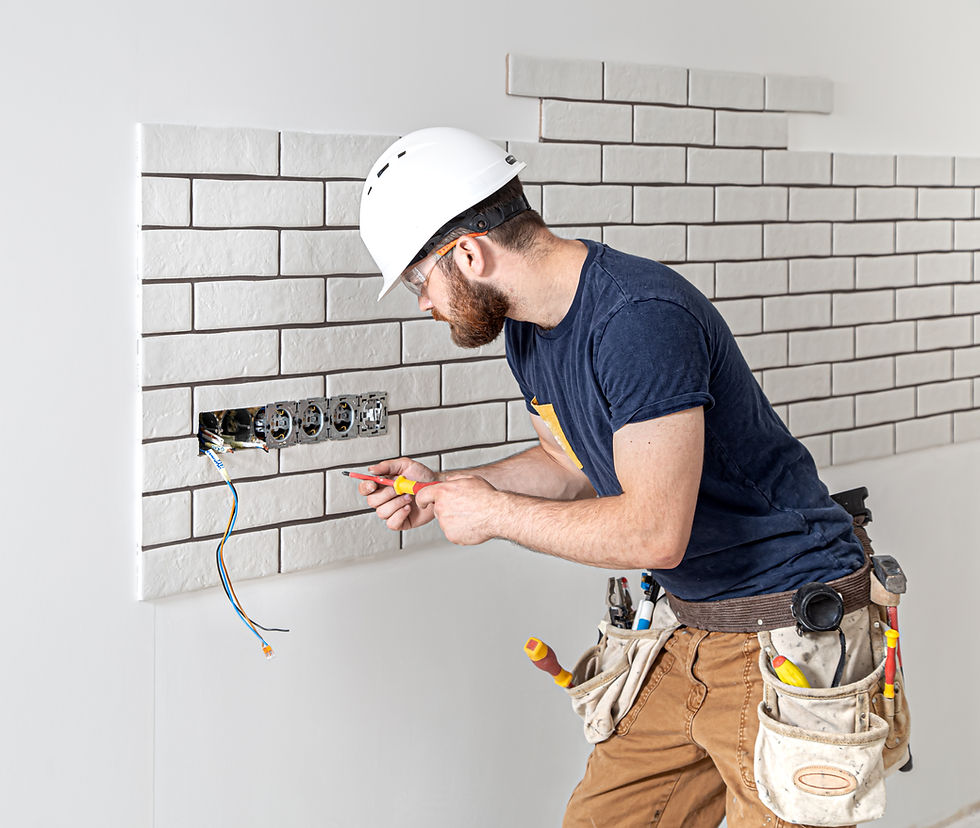10 Common Electrical Hazards & How to Prevent Them
- John Shaw
- Mar 24, 2025
- 3 min read

Electricity is essential in our daily lives, but it can also be dangerous if not handled properly. Many common electrical hazards pose risks to both homes and businesses, leading to fires, electrocution, or severe injuries. Understanding these risks and taking preventive measures can help ensure safety. This article outlines ten common electrical hazards and how to prevent them.
1. Overloaded Circuits
Plugging too many devices into a single outlet can overload the circuit, increasing the risk of fire.
Prevention:
Use power strips with built-in circuit breakers.
Distribute electrical load across multiple outlets.
Hire a professional electrician to assess your electrical capacity.
2. Exposed Wiring
Damaged or exposed wires can lead to electrical shocks or fires.
Prevention:
Inspect electrical cords regularly for fraying or damage.
Replace old or worn-out wires immediately.
Seek professional help from electrical contractors & services to handle wiring issues.
3. Faulty Outlets
Loose or damaged outlets can cause electrical sparks, posing a fire hazard.
Prevention:
Ensure all outlets are tightly secured.
Replace old or malfunctioning outlets promptly.
Contact an electrical technician for proper installation.
4. Wet Electrical Areas
Water and electricity are a deadly combination, increasing the risk of electrocution.
Prevention:
Keep electrical appliances away from water sources.
Install Ground Fault Circuit Interrupters (GFCIs) in bathrooms and kitchens.
Immediately dry and repair any wet electrical components.
5. Using the Wrong Wattage
Light fixtures and appliances require specific wattages. Using the wrong wattage can overheat and damage the device.
Prevention:
Always check wattage ratings before replacing bulbs or appliances.
Use LED bulbs, which consume less power and generate less heat.
Consult an electrician for energy-efficient solutions.
6. Outdated Electrical Systems
Older homes may have outdated wiring that isn’t capable of handling modern electrical loads.
Prevention:
Upgrade old wiring with the help of electrical contractors & services.
Schedule regular inspections to ensure compliance with safety codes.
Replace outdated fuse boxes with modern circuit breakers.
7. Improper Use of Extension Cords
Overusing extension cords or daisy-chaining them can create electrical hazards.
Prevention:
Use extension cords as a temporary solution, not a permanent fix.
Avoid plugging high-power appliances into extension cords.
Install additional outlets where needed.
8. DIY Electrical Repairs
Attempting electrical repairs without proper knowledge can lead to serious injuries or faulty wiring.
Prevention:
Always hire a qualified electrician for repairs.
Avoid tampering with electrical panels or high-voltage wiring.
Follow local electrical codes for installations.
9. Improperly Grounded Appliances
Ungrounded appliances increase the risk of electrical shocks.
Prevention:
Ensure all three-pronged appliances are properly grounded.
Avoid using adapters that bypass grounding.
Consult an electrical technician for grounding checks.
10. Overheated Electrical Panels
Overheated breaker panels can lead to circuit failures or electrical fires.
Prevention:
Schedule regular maintenance checks.
Avoid overloading circuits beyond their capacity.
Replace outdated panels with modern, heat-resistant models.
Conclusion
Electrical hazards are preventable with proper precautions and regular maintenance. By understanding common risks and working with qualified electricians, you can ensure a safe living and working environment. Whether it’s replacing outdated wiring, fixing faulty outlets, or performing electrical repairs, always rely on professionals.
At Rytec Electrical, expert electrical contractors & services provide top-notch solutions for residential and commercial needs. Their skilled team ensures safety, efficiency, and compliance with electrical codes, making them the trusted choice for all your electrical concerns. Stay safe and power your home with confidence!



Comments